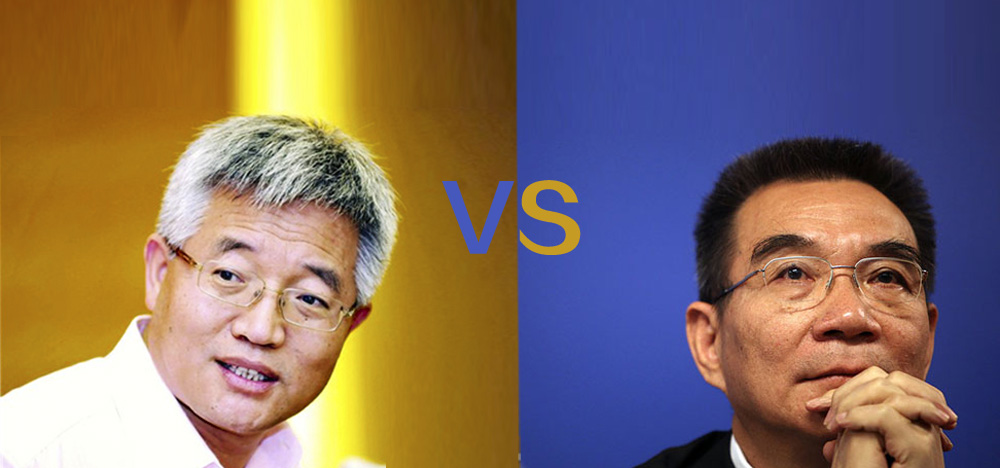第七届中国经济学年会论文专场综述:劳动、人口经济学Ⅱ
- A-A+
- 第七届中国经济学年会 2007-12-28 09:18:23 来源: 作者:钟宁桦 0
From 10-12 am, Dec.15, the section of “labor economics Ⅱ” was held in the room E-106. All of the four papers are written in English, which is a feature of this annual conference and reflects significant improvements in the quality of CEA articles. Professor Yaohui Zhao, from CCER of Peking University, chaired the discussion.
The first presenter was Ninghua Zhong from CCER. He presented his article "Hourly Wage, Monthly Working Hours and Pension Coverage: Are Labor Unions in China Effective in Improving Workers’ Welfare?":
In the article, he study the impact of unions in China on three important aspects of workers’ welfare, namely, hourly wage, monthly working hour, and pension coverage. Without taking into account the endougenity of unionization, SUR model estimates show that unions have significant effects on all three aspects. However, once the simultaneity between welfare and unionization is introduced, unions’ impact on working hours is no longer significant, but their influence on wage and pension coverage increases. The estimated unions’ effects on pension coverage are especially large, which indicates that pension is more sensitive than wages and hours, and that unions could play a more significant role in gaining this and other fringe benefits for workers. The results do not support the hypothesis that migrant workers are discriminated against, but can not reject the hypothesis that exporting companies are under intense pressure from foreign markets to cut down their costs and their welfare expenditure. A switching model estimate further verifies unions’ effects on wages, additionally, it shows a considerable negative effect of wage markup on unionization.
Zheren WU commented the article. She suggested that more real cases and examples should be included in the article to illustrate the role China’s unions play. She also thought that the article should argue more on the reason for exporting companies providing less welfare to their workers.
The second presenter was Zheren WU from Osaka University. She presented the article :"Relative Income Positions and Labor Migration: A Panel Study Based on a Rural Household Survey in China":
Migration may be used as a strategy to improve a household’s comparative income position in residential areas. Previous studies have found empirical evidence that relative incomes affect emigration decisions. However, no effect is detected for internal migration. In this paper, we reexamine the effect of relative income positions on internal migration behavior. Based on data from a rural household panel survey of the Sichuan and Anhui provinces in China, we find that motives based on relative income play an important role in households’ migration decisions. When all else is equal, a household that is poor relative to its home village reference group is more likely to increase migration than is a household in the upper end of the village income distribution. This effect is particularly apparent in households with pioneer migrants. The empirical results also indicate that pioneer migrants may confer a positive externality on potential future migrants. Workers belonging to households with pioneers might be less impeded by migration risks and costs and may be more likely to view migration (an increase in the number of migrants) as an effective strategy for improving their relative economic positions.
Yaohui Zhao comments that, while households and individuals do have motivations to change their relative position, migration would not be an attractive choose when it is not high risk and high costs.
The third presenter is Jun Han, from University of Hong Kong. The article he presented was "Age Structure of the Workforce in Growing and Declining Industries: Evidence from Hong Kong":
Industry-specific human capital reduces the incentive for older workers to leave declining industries and raises the incentive for younger workers to join growing industries. Using the industry restructuring experience of Hong Kong, he find that a one percent increase in employment share of an industry is associated with a 0.60 year decrease in the average age of its workforce. The relationship is more pronounced among less educated workers, who have less general human capital, and male workers, who are more committed to the labor force, than among well educated workers and female workers.
Professor Albert Park commented that younger workers are possible to have higher motivations to move to higher-demand industries, which maybe a more important reason for the phenomena talked in this article. He also mentioned that interpretation on male and female results should be added.
The last presenter was Ninghua Du from Shanghai University of Finance and Economics, he presented his article: “Shocks and Relationships”:
The positive correlation between wage and effort in static conditions has been demonstrated in many experimental studies and has been one of the prominent explanations for the existence of wage rigidity. We subject this finding to further tests in a non-stationary environment that better corresponds to outside-the-lab market conditions. We claim that the environment with negative exogenous shocks is more appropriate and provides a better test for the existence of wage-rigidity because it brings stronger incentives to decrease the wage than a setting when the market conditions are relatively stable or improving. We do not find support for downward wage rigidity in our data. Once the shocks occur, firms lower the wages and relationships often break down. The workers who accept a lower wage respond with exerting a lower effort.
Zheren WU suggested cutting SR and focusing on SF and CF conditions. She also asked that why under no reputation condition the wage level is significantly higher than the market clearing wage level.
Ninghua Du answered the question by mentioning the existence of other regarding preference, and that their finding is tightly closed to the previous literature.
After the presentation, many audience talked with the presenters on many further questions.
天津大学马寅初经济学院2022年预聘教
天津大学马寅初经济学院是以北洋大学(天津大学前身)毕业的马寅初学长命名的一所与国际接轨、高起点的...北京大学国家发展研究院招聘事业编制
北京大学国家发展研究院招聘事业编制研究员2名。北大汇丰智库研究实习岗位招聘启事
北大汇丰智库将于2020年起招聘实习研究专员若干名。
-
被误读的凯恩斯理论
84人看过
-
卖方研究外患
131人看过
-
周其仁称中国经济增速高位下行不可避免
65人看过
-
这9家中国公司上榜全球最聪明公司,为什么?
262人看过
-
布拉德福德·德隆:放血?
71人看过




